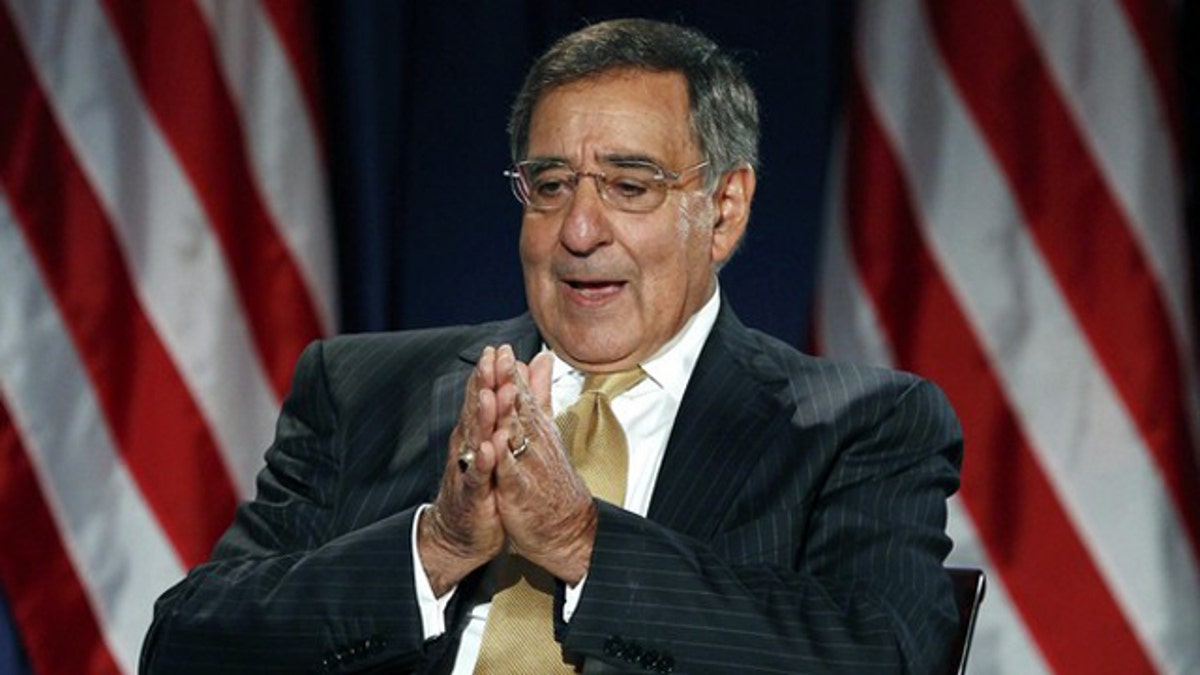
Secretary of Defense Leon Panetta takes part in a televised conversation at the National Defense University in Washington Aug. 16. (Reuters)
Pentagon officials and Republican members of the House Armed Services Committee are warning that if Congress' so-called deficit "super committee" fails to agree to more than a trillion dollars of cuts to the budget by Christmas, then lawmakers will try to balance the budget on the backs of the armed forces.
Defense Secretary Leon Panetta warned of dire consequences last week when asked by Sen. Lindsey Graham what would happen if the committee fails, prompting an automatic $650 billion in cuts to the defense budget.
“If we pulled that trigger, would we be shooting ourselves in the foot?” Graham asked.
“We'd be shooting ourselves in the head,” Panetta replied.
House Armed Services Committee Chairman Buck McKeon has warned if the cuts are too deep the Pentagon may have to reintroduce the draft. A memo prepared by Republicans on that committee shows how the the country's overall unemployment rate would rise if these severe defense cuts are triggered.
Nearly 200,000 soldiers and Marines would be let go, and the Armed Service Committee members warn that at least 25 percent of the military's civilian workforce would be furloughed, eliminating at least 200,000 jobs.
And finding employment for returning veterans will be difficult, they warn. The national unemployment rate is currently 9 percent, but unemployment for Iraq and Afghan war vets is 22 percent, and it is 41 percent for wounded vets.
If the deficit super committee fails to reach an agreement, the number of Army battalions will go from 100 to about 60 battalions. The number of Navy ships will go from 288 to 238 - a reduction of two Aircraft Carrier Battle groups. The Air Force would lose more than 400 fighter jets and about 34 strategic bombers.
The biggest jobs cuts would be in Virginia, Texas and California -- where the defense industry supports local economies. Such cuts in the short term may cut the debt but would also cause the national unemployment rate to rise significantly, according to Pentagon officials.
Defense spending will soon be at its lowest level, as a portion of the overall federal budget, since before World War II. The Obama administration has ordered the Pentagon cut its budget by $465 billion over the next decade. In the next two years the Pentagon budget is slated to fall by 10 percent, even without sequestration or the punishment that is automatically triggered if the super committee fails to find a compromise and other savings.
“Compared with the (fiscal year) 2013 level in the president’s budget plan submitted last February, this cut would result in a reduction of as much as 15 to 25 percent (in across the board cuts) depending on whether the president elects to exempt military personnel funding,” Panetta and White House Budget Director Jacob Lew wrote to lawmakers on the House Armed Services Committee.




